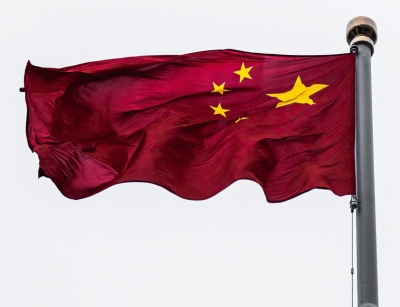China controls 70% of global lithium production; that's a worry for the world
By IANS | Published: February 25, 2023 11:03 AM2023-02-25T11:03:06+5:302023-02-25T11:20:15+5:30
New Delhi, Feb 25 "Control oil and you control nations", former US Secretary of State Henry Kissinger once ...

China controls 70% of global lithium production; that's a worry for the world
New Delhi, Feb 25 "Control oil and you control nations", former US Secretary of State Henry Kissinger once said. Today, it could be argued that to control lithium - white oil as it were - is to control nations, Marina Yue Zhang wrote for the Lowy Institute.
Lithium has become a critical mineral in green technologies, with lithium-ion batteries used to power electric vehicles, and to store wind and solar energy.
Like oil, lithium, is not evenly distributed in the world. Nearly 80 per cent of known deposits are in four countries - the South American lithium triangle of Argentina, Bolivia and Chile, and Australia. However, holding less than 7 per cent of the world's lithium reserves, China is the world's largest importer, refiner and consumer of lithium, buying 70 per cent of lithium compounds and supplying 70 per cent of lithium production, largely to domestic lithium battery makers, six of which are among the top ten in the world, Zhang wrote.
Marina Yue Zhang is an associate professor at the Australia-China Relations Institute, University of Technology Sydney.
China's lithium dominance has caused concerns. Both the European Union and the United States have prioritised building greater self-sufficiency in raw materials, lithium included, in their industrial policies, aiming to curb their reliance on China and boost homegrown green technologies. This exposes China's vulnerabilities in its transition to clean energy, Zhang said.
Characterising batteries as the battlefield, Foreign Policy said that the next geopolitical contest may be over green technology, and China, for now, is poised to win control of those supply chains.
In the quest for the clean energy revolution, the United States is one of many countries that have ramped up investment in electric vehicles manufacturing and renewable energy sources to power the shift away from fossil fuels.
But that is an industry that has already been staked out by another power: China. After a decades long push, Beijing wields considerable control over supply chains for lithium-ion batteries, which are critical to everything from electric cars to smartphones. That dominance has transformed those powerful batteries - and the key metals they comprise of - into a thorny geopolitical flash point during a period of heightened tensions, Foreign Policy reported.
"China is the dominant player across the supply chain for almost all of these critical minerals," said Morgan Bazilian, director of the Payne Institute at the Colorado School of Mines and a former lead energy specialist at the World Bank, the report said.
Is containing China the best option for the world? Zhang said over the past decade, China has invested heavily in transitioning to clean energy, including developing technologies and production know-how covering the entire lithium supply chain. It has paid substantial environmental costs through trial-and-error innovation and has now developed dominant advantages in not just the scale of mass production, but also green technologies used in lithium processing. It is debatable whether that cost should be repeated by other countries.
China's control of refined materials for battery cells and its advanced battery-making technologies are particularly important. So important that Western automakers who want to transition out of gas cars won't be able to do it without turning to Chinese-made batteries. That's why Ford has been planning for a long time to build a battery plant with Chinese battery giant CATL, the world's largest manufacturer of lithium batteries, MIT Technology Review reported.
Chinese companies have managed to make good quality batteries in large quantities and at a low cost. It will be commercially unviable to avoid using Chinese batteries, and it will take a long time for domestic battery companies to rival the size and efficiency of CATL, MIT Technology Review reported.
Ford's new plant will focus on making LFP batteries, which use iron rather than the cobalt and nickel used in the other main type of lithium battery, known as NMC. Compared with NMC batteries, which are widely used to make EVs in the US and Europe, LFP batteries cost less, have a longer life cycle, and are safer when it comes to the possibility of catching fire.
But just a few years ago, LFP batteries were considered an obsolete technology that would never rival NMC batteries in energy density. It was Chinese companies, particularly CATL, that changed this consensus through advanced research, MIT Technology Review reported.
"That's purely down to the innovation within Chinese cell makers," said Max Reid, senior research analyst in EV and battery supply chain services at the global research firm Wood Mackenzie. "And that has brought Chinese EV battery
Disclaimer: This post has been auto-published from an agency feed without any modifications to the text and has not been reviewed by an editor
Open in app